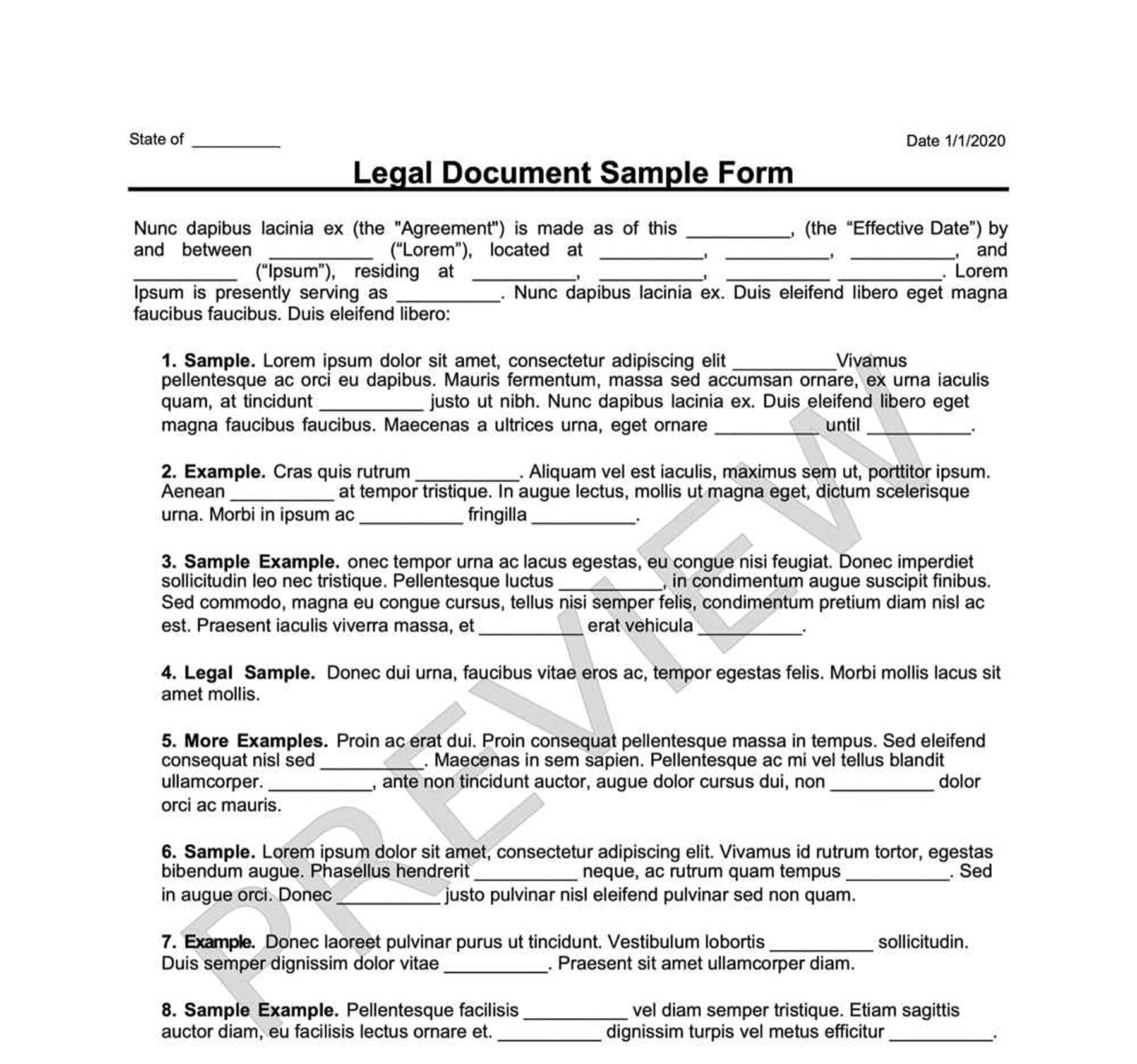Employee Confidentiality Agreement
An Employee Confidentiality Agreement is signed by both the employer and the employee, where the latter is to promise not to disclose any sensitive information of the former for a period of time.

How it Works
Build your selected document.
Answer a few simple questions with step-by-step instructions.
Print & download forms instantly. Sign & make it legal.
What Is a Employee Confidentiality Agreement?
There are many uses of an Employee Confidentiality Agreement, a standard business practice nowadays. It is advantageous if you have much data to protect or if you have to protect new developments in your business.
The goal of an Employee Confidentiality Agreement is to protect that information from reaching your company's competitors. Having your employees sign this agreement likely gives you peace of mind to carry on with your business with one less concern.
What Is an Employee Confidentiality Agreement?
The most vital aspect of an Employee Confidentiality Agreement is to make it specific enough to be easily enforceable. A potential problem, in general, is if the scope of what's being protected is too broad. A court of law can strike out that and any unreasonable promises extracted.
Also, the term of the agreement must be set. It should specify if the employee is not to disclose certain information for some time or in perpetuity. You should also determine if it is necessary to abide by the agreement if the employee leaves the company and how long after that.
Other Names for Employee Confidentiality Agreement
Depending on your state, an Employee Confidentiality Agreement may also be known as:
- Employee Non-Disclosure Agreement
- Employee Confidentiality Contract
- Employee Secrecy Agreement
- Proprietary Information Agreement
Who Needs an Employee Confidentiality Agreement?
Any employer may decide to ask future or current employees to sign an Employee Confidentiality Agreement. It is standard practice in specific industries, for example, technology. A potential employee may decide against signing the agreement, for which the employer would have the right to withdraw the employment offer.
Why Use Swyft Forms for Your Employee Confidentiality Agreement
Customized for you, by you
Create your own documents by answering our easy-to-understand questionnaires to get exactly what you need out of your Employee Confidentiality Agreement.
Specific to Your Jurisdiction
Laws vary by location. Each document on Swyft Forms is customized for your state.
How to Create an Employee Confidentiality Agreement with Swyft Forms
If you are a business owner who is always hiring, it may be smart to ask your employees to sign an Employee Confidentiality Agreement. Instead of hiring a law firm or risking a mistake on your own, you can use a template to create your agreement.
Let Swyft Forms help with our extensive library of attorney-vetted legal forms. The process is fast and easy. All you have to do is fill out our easy-to-understand questionnaire. Once complete, simply download your form as a PDF or Word document from your secure online account.
What Information Will I Need to Create My Employee Confidentiality Agreement?
To create your document, please provide:
- Employer Information: The legal name of the employer.
- Employee Information: The legal name and contact information of the employee.
- Governing State: The state where the agreement is to be signed.
- Effective Date: The date when the deal is to be signed.
- Consideration: Disclose if there are any incentives given to the employee for entering into this agreement.
- Examples: A specific example of what would constitute confidential information.
- Term: Specify the duration of the contract.
Employee Confidentiality Agreement Terms
- Cease and Desist: A demand to stop using copyrighted materials, usually issued by the rights owner or the legal representative
- Injunction: A court order for one party to refrain from a specific act or risk a charge of contempt of court
- Disclosure: Giving information to another party
- Severability: The quality of a document, such as an agreement or a lawmakers' bill, being valid even when some parts or provisions are struck out (valid without the offending parts or provisions)
- Non-solicitation clause: A clause forbidding one party from soliciting or poaching employees and clients
- Employee Handbook: A document or manual containing a company's job-related policies
Employee Confidentiality Agreement Signing Requirements
For an Employee Confidentiality Agreement to go into effect, both parties need to agree to the terms and sign the document. Notarization isn't necessary, but having a witness could be beneficial if there's ever a dispute in the future.
What to Do with Your Employee Confidentiality Agreement
Both parties are entitled to have a physical copy of the signed Employee Confidentiality Agreement. The employer should keep the document with the rest of the employee records. As for the employee, they may want to keep the copy in a safe and secure location.
Other Names for Employee Confidentiality Agreement
- Employee Confidentiality Agreement Form
- Employee Confidentiality Agreement Document
- Employee Confidentiality Agreement Agreement
- Employee Confidentiality Agreement Contract
- Employee Confidentiality Agreement Template
- Employee Confidentiality Agreement Checklist
Who Needs a Employee Confidentiality Agreement?
Why Use Swyft Forms for Your Employee Confidentiality Agreement
Customized for you, by you
Specific to Your Jurisdiction
Why choose Swyft Forms?
Create professional documents for thousands of purposes.
Make unlimited documents and revisions.
Our documents are vetted by lawyers and are applicable to all 50 states.
